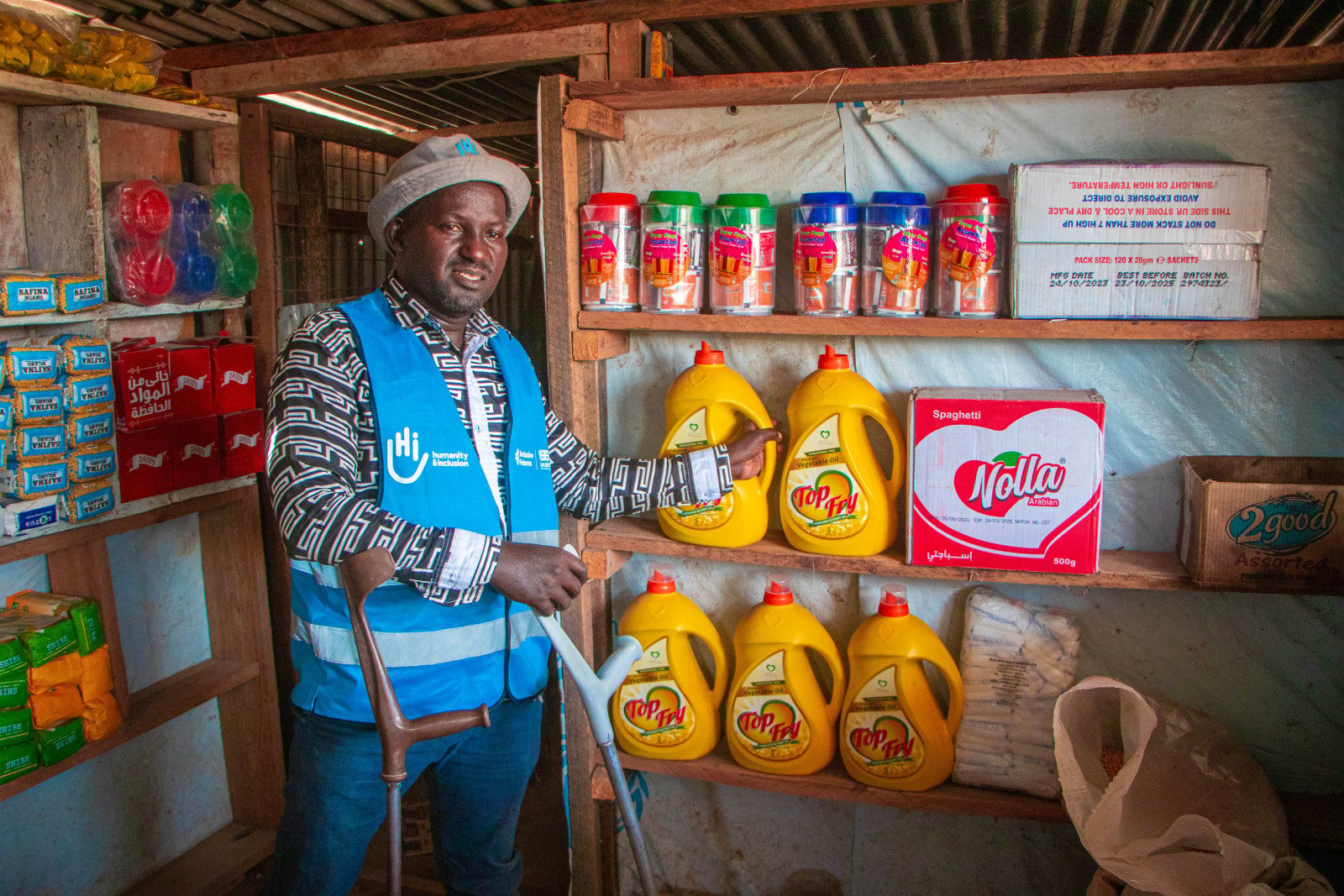People with disabilities in the Kakuma refugee camp, the Kalobeyei settlement and surrounding host communities face many challenges when it comes to starting a business and making it thrive. To make the environment more inclusive, HI supports 75 micro-entrepreneurs and the country's public and private institutions to help promote initiatives led by people with disabilities.
The will to succeed
To help people with disabilities get their businesses off the ground and succeed, HI offers them customized support, including training and adaptations to their working environment. This is the case of David Bigirimana, a 43-year-old micro-entrepreneur living in the Kakuma refugee camp, who has opened a shop. He explains:
"Before, my life was difficult. I opened my own shop and sold goods, but I didn’t keep accounts. When my family needed food, I simply helped myself to the stocks. Eventually, I realized that I wasn't making a profit. Since I joined the project, everything is better organized. Now I'm making a profit and have been able to open a second shop."
To support micro-entrepreneurs, HI offers training courses in accounting, inventory management, customer relations and product promotion to help them acquire the skills they need to run a business:
"Thanks to these training courses, we have had the opportunity to talk to business leaders from other sectors about the challenges we face and learn to overcome them. HI also provides tailor-made equipment adapted to people's disabilities, which is a big help to us in running our businesses," says David Bigirimana.
David has a physical disability and walking is a real challenge for him. To get to the market where he buys the products for his shop, he uses a tricycle, which is very tiring.
"But that's not the only challenge I face on a daily basis: the real obstacle is society's prejudice against disabled entrepreneurs and distrust in their capacities.”
Changing society to make it more inclusive
 HI works with all the actors in the world of business to make the environment more inclusive, and more favorable to initiatives undertaken by people with disabilities. Many physical and social barriers can only be removed with the support of society as a whole.
HI works with all the actors in the world of business to make the environment more inclusive, and more favorable to initiatives undertaken by people with disabilities. Many physical and social barriers can only be removed with the support of society as a whole.
"The project has had positive effects beyond training: we have strengthened the links between micro-entrepreneurs and financial institutions and with public and private institutions. We have also trained these institutions in inclusion and disability to encourage them to offer public contracts to businesses run by people with disabilities," explains Kelvin Andati, HI's Economic Inclusion Officer, who is responsible for the project.
HI also carries out advocacy work to raise awareness of the rights of people with disabilities and to ensure that these rights are respected, working hand in hand with organizations of people with disabilities set up by the local refugee and host communities.



 HI works with all the actors in the world of business to make the environment more inclusive, and more favorable to initiatives undertaken by people with disabilities. Many physical and social barriers can only be removed with the support of society as a whole.
HI works with all the actors in the world of business to make the environment more inclusive, and more favorable to initiatives undertaken by people with disabilities. Many physical and social barriers can only be removed with the support of society as a whole.
